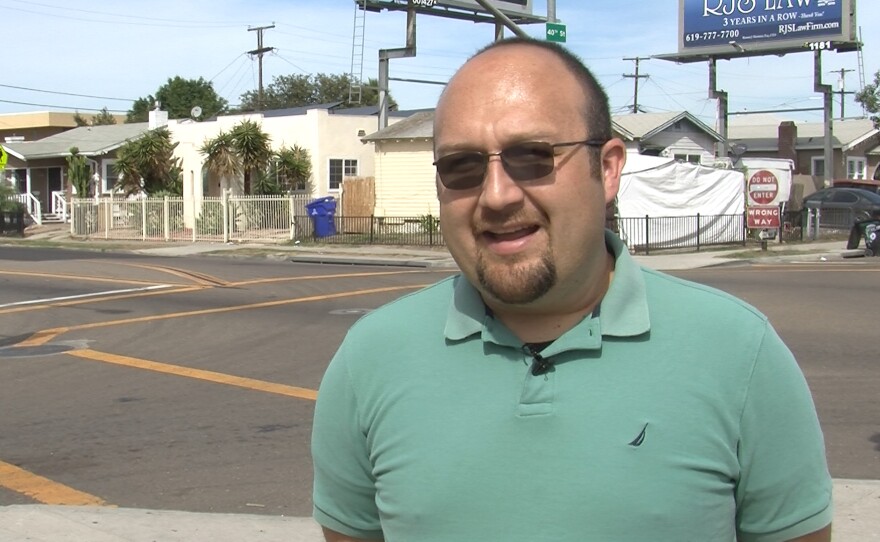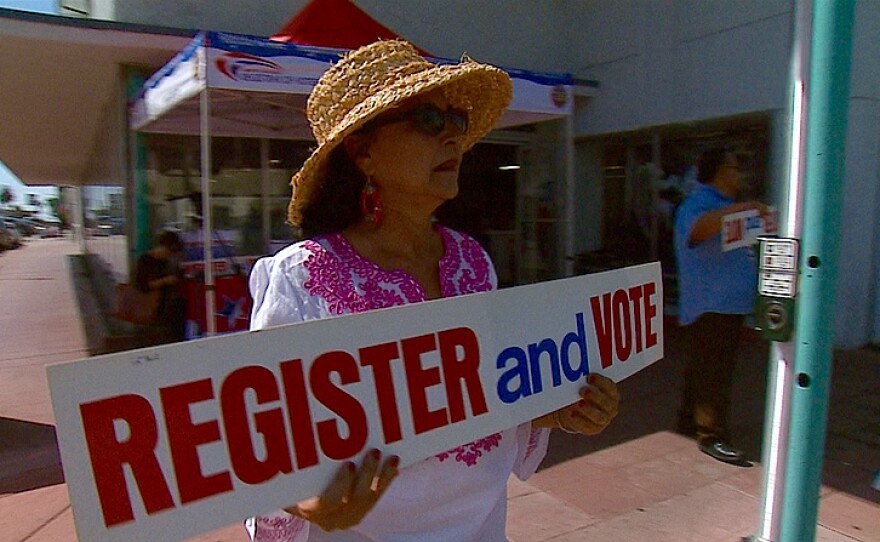
How often do you talk politics with your neighbors? That’s what community members in City Heights and other neighborhoods with low voter turnout are planning to do this weekend.
Residents will complete training with the nonprofit Environmental Health Coalition on Saturday and knock on their neighbors’ doors to encourage voters to cast a ballot this November.
The Coalition's Associate Director of Organizing Jose Franco Garcia said the effort will target inactive voters who may be overlooked by large political campaigns.
"We do this work because we know that these communities have shown historically that when they do vote, they vote to try to improve the health in their community, to try to improve the air quality in their community," Garcia said.
As an example, Garcia pointed to the passing of state Proposition 39 in 2012. The measure closed a tax loop hole for out-of-state energy companies that was expected to result in more revenue for clean energy projects, which, Garcia said, would benefit the lower-income neighborhoods where the coalition operates.
"Our targeted precincts voted to pass Prop. 39 by 74 percent while the city of San Diego voted 'yes' by 60 percent," Garcia later wrote in an email, citing an EHC analysis.
Beatriz Cuartas, George Washington University's Graduate School of Political Management Deputy Program Director, said the organization's focus on training residents to encourage their own neighbors to cast a ballot could be more effective than a traditional get-out-the-vote effort.
"When you train other people to start this effort and to educate other people, it's a lot more powerful than if you just train them to go and vote," said Cuatras, who is also a visiting professor at the university.
"Rather than just empowering voters, now you're empowering leaders that will empower, in turn, other leaders," she added.
More than 50 volunteers, including many who speak Spanish and some who speak Vietnamese, will be active in City Heights, National City, Logan Heights, Barrio Logan and Sherman Heights on Saturday to kick off the campaign, Garcia said. They'll talk about the importance of voting and discuss environmental health issues on the ballot.
The coalition's Georgette Gomez is a candidate for San Diego City Council's District 9, which includes City Heights, but Garcia said Gomez will not be participating in the weekend event nor will volunteers be discussing the local race.
Gomez is running against Ricardo Flores, chief of staff to current District 9 Councilwoman Marti Emerald.








